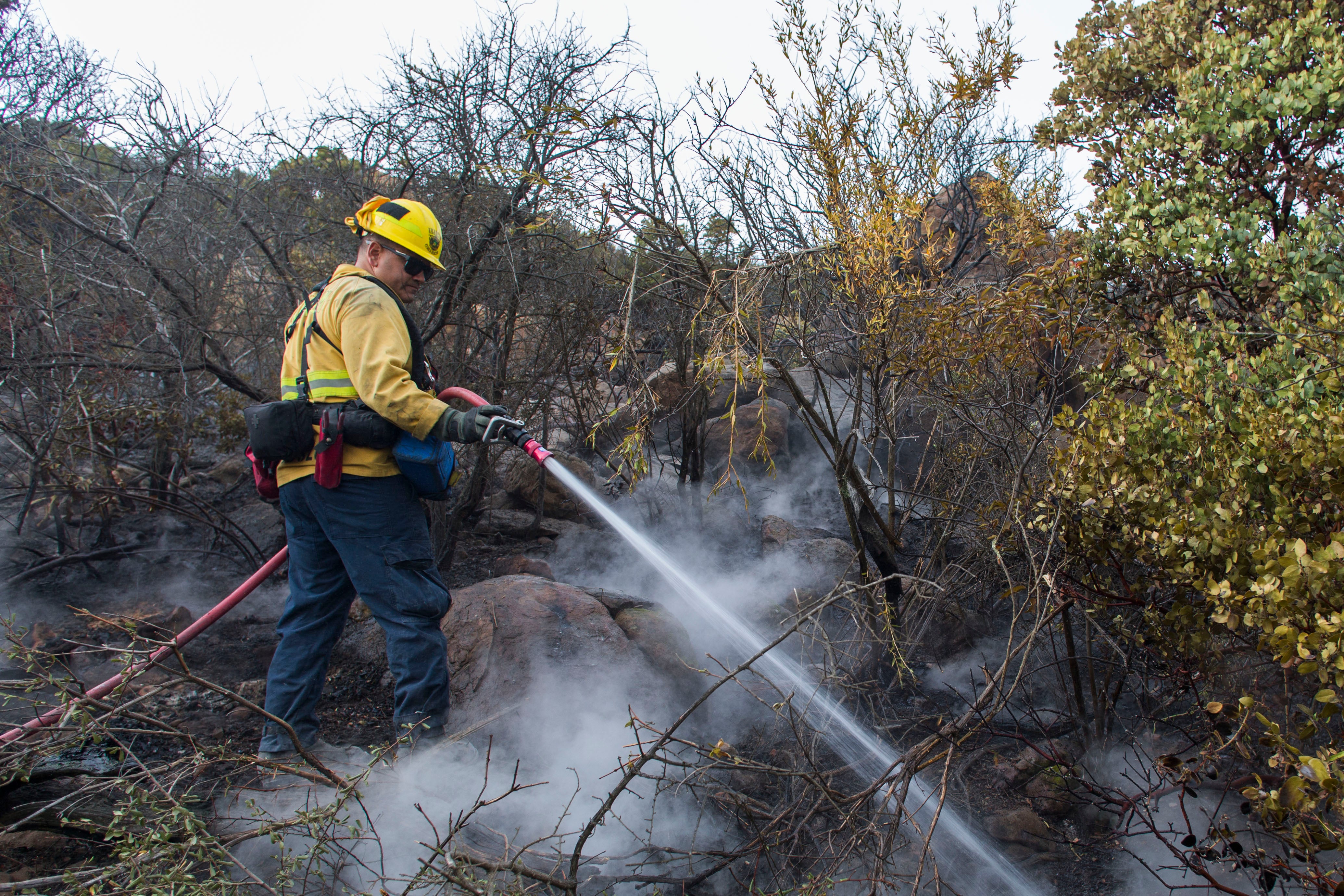Risk of extreme autumn ‘fire weather’ in California up 40% due to climate change, study finds
Findings can guide fire-risk assessments and fire adaptation efforts, say scientists

The likelihood of hot, dry, windy autumn weather that can set the stage for severe fires in the US states of California and western Oregon has increased by 40 per cent due to climate change, according to a new modelling study.
Researchers, led by a team from Oregon State University, assessed the role climate change may have played in extreme fire weather conditions that accompanied recent large blazes in those states in September, October and November.
They examined the weather conditions during big fires driven by strong offshore winds like California’s Santa Ana and Diablo winds and western Oregon’s East wind.
Researchers also assessed conditions similar to those seen during recent catastrophic fires such as Northern California’s Wine Country fires in October 2017, the Camp Fire in November 2018 and the North Complex Glass fires in September 2020.
The study, published in the journal Geophysical Research Letters earlier this month, found that human-induced climate change reduced the frequency of those winds in the two year study period of 2017 and 2018.
However, scientists said the four areas studied in the research were more likely to have extreme autumn fire weather than they would have had without human-induced rise in atmospheric aerosols and carbon dioxide.
“Despite a small decrease in the frequency of strong offshore winds, anthropogenic climate change has already increased the likelihood of extreme autumn fire weather across most of the west coast of the US through higher temperature and drier fuels, heightening the risk to life and property,” researchers wrote in the study.
California and western Oregon have experienced their largest and most destructive wildfires ever recorded over the last few years.
Experts say the rapid and extensive growth of many of the autumn fires was driven by strong, dry, offshore, downslope winds blowing across fuels that had become very parched over the summer.
In the study, scientists set the atmospheric carbon dioxide (CO2) and aerosol concentrations to mid-19th century levels, and performed thousands of simulations with present-day CO2 and aerosol concentrations.
They also conducted thousands more simulations with CO2 and aerosol concentrations set to pre-industrial levels.
Researchers also compared the likelihood of extreme autumn fire weather conditions – defined as conditions, which without human influence, would occur once every 20 years – between the two sets of simulations.
“We found that when CO2 and aerosols from human activity were included, the chance of extreme conditions was 40% higher in those areas of California and Oregon where recent autumn fires have occurred,” Dr Hawkins said.
“The jump was mainly because of an increase in temperature and fuel aridity and not an increase in wind speeds. In fact, we found anthropogenic climate change slightly decreased the frequency of strong, dry, offshore winds,” she added.
Scientists said the 40 per cent likelihood increase is the average across western US, and that this rise is smaller or larger in specific regions.
“What our research demonstrates is that anthropogenic climate change has already increased the likelihood of autumn wind-driven extreme fire weather conditions in the West,” Dr Hawkins said.
“Together with non-climatic factors like biomass accumulation and more and more people living in the wildland urban interface in fire-prone lands, that means overall fire risk is going up. Approaches such as we used here can guide fire risk assessments and fire adaptation efforts,” she added.
Subscribe to Independent Premium to bookmark this article
Want to bookmark your favourite articles and stories to read or reference later? Start your Independent Premium subscription today.

Join our commenting forum
Join thought-provoking conversations, follow other Independent readers and see their replies
Comments